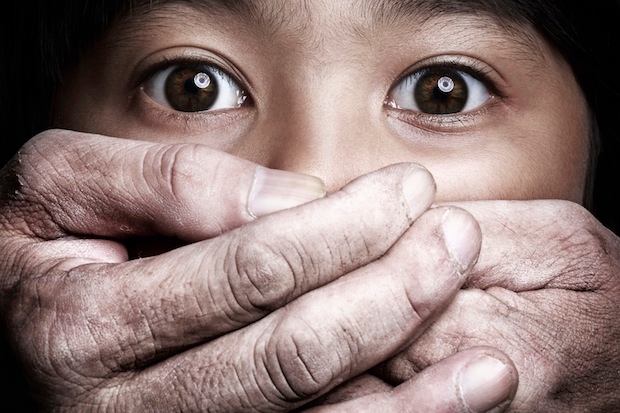The term ‘psychological thriller’ is an elastic one these days, tagged liberally on to any story of suspense that explores motivations while keeping blood and chainsaws to a minimum. In many cases, the line between a thriller and a crime novel has become too blurred to be useful. In the novels of Nicci French, however, there is little ambiguity: their pattern is to deliver the mental shock-equivalent of a dead body, followed only later by a real one. It is an effective formula — as Alfred Hitchcock put it: ‘There is no terror in the bang, only in the anticipation of it.’
Among the best of Hitchcock’s own psychological thrillers is Spellbound, whose story unusually wrapped the subject of psychoanalysis around a murder mystery. It was based on a book by a writing duo who combined as Francis Beeding, a team approach that is also true of Nicci French, the partnership of Nicci Gerrard and Sean French. In their latest novel, Thursday’s Child, the genre’s ‘psychological’ demands are explicitly taken care of by the fact that their female lead, Frieda Klein, is herself a psychotherapist. Klein has already appeared in three previous novels, in which her own life, punctuated by murder and dysfunction, is played out and self-analysed.
Thursday’s Children sees Klein being reluctantly thrown back into the town of her childhood, and the chill of her family home. A sudden departure from Braxton and an estrangement from her mother have been hinted at in the previous novels, and here we find the catalyst for both. As Frieda accepts the request of an old school friend to assess Becky, her troublesome teenage daughter, we discover the reason for Becky’s behaviour and the root of Frieda’s own alienation. Each of them has been raped — Frieda years before at the age of 16. Not only that, but the rapist’s MO was the same, including his parting words to both girls: ‘Don’t think of telling anyone, sweetheart, no one will believe you.’ It is a warning which, when each girl tries to tell her mother, proves coldly accurate.
The premise is a promising one, catching as it does the complicated stance most of us hold towards our childhood personality and the degree to which we care to revisit it. Frieda’s dilemma is eloquently drawn: ‘Nobody could really understand how she had gone back to her past and found herself still alive in its rubble.’ More importantly, the rape and its reverberations through her life are intelligently handled, particularly in her confrontations with a wilfully disbelieving mother, who has her own unsavoury motivations for turning a blind eye.
The motley cast of characters from Frieda’s past and reluctant present is given due and, for the most part, convincing characterisation. But with the exception of Becky, whose teenage complexity rings true and anguished, their ordinariness fits uneasily at times within a plot that must rely on the extraordinary for momentum. We understand the implication that evil can hide behind even the most banal of façades, but our anticipation of the Hitchcockian bang is all but stifled by the uniform greyness of the world it inhabits.
And that is the flaw of Thursday’s Children: we care too little about its people. Frieda’s professionally dispassionate, almost haughty, stance is echoed too coolly in the narration of her story. Ultimately, and despite her tragedy, her character offers too few chinks of warmth to make us feel anything other than intellectually appeased, but emotionally indifferent. One of Frieda’s childhood friends admits to her: ‘It’s hard not to feel that in some way those of us who stayed behind are regarded as the underclass.’ The reader may decide they feel a little that way, too.






Comments